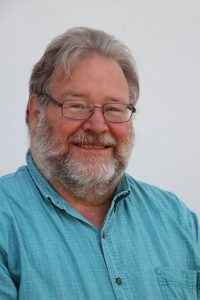SAIP WEBINARS
Title: New Eyes on the Sun
Speaker: Dr. Martin Snow
Date: 25 June 2021
Registration Link: https://us06web.zoom.us/webinar/register/WN_-Sp92st6TOenLtEEvcBCEQ 
Abstract:
We are entering a new and exciting era of solar observations. From ground-based telescopes like the Daniel K Inouye Solar Telescope (DKIST) to spacecraft like Solar Orbiter that touches the edge of the Sun, we have unprecedented views of solar activity. Our fleet of operational solar observatories has also grown in recent years to include the Solar UltraViolet Imager (SUVI) on the GOES-R series of satellites. I will give an overview of recent spectrographs and imagers, and what we hope to learn from each. This is an exciting time for both solar physics, and for understanding the Sun-Earth connection and Space Weather.
Brief CV:
Dr Martin Snow is the newly appointed SANSA SARCHI Research Chair in Space Weather. He has a PhD in Astrophysical, Planetary and Atmospheric Science from the University of Colorado in the USA. His expertise lies in the area of Solar Physics, with a specialized skill set in solar irradiance measurements. During his career he has been the lead instrument scientist on a number of satellite missions gathering solar measurements. His valuable experience to South Africa lies in his knowledge of Solar Physics, and related space instruments and data.
Dr Snow is currently actively involved with research related to ultra-violet Solar Spectral Irradiance (SSI) observation and data production. He is also an instrumentalist, working with calibration on satellite observatories. He has obtained leadership experience across a range of institutions. He has published extensively and given many keynote and plenary addresses. Dr Snow has mentored numerous students in the USA, and is looking forward to working with students, researchers and universities in South Africa to grow the expertise and capability here. He comes to SANSA from the Laboratory for Atmospheric and Space Physics at the University of Colorado Boulder in the USA.


